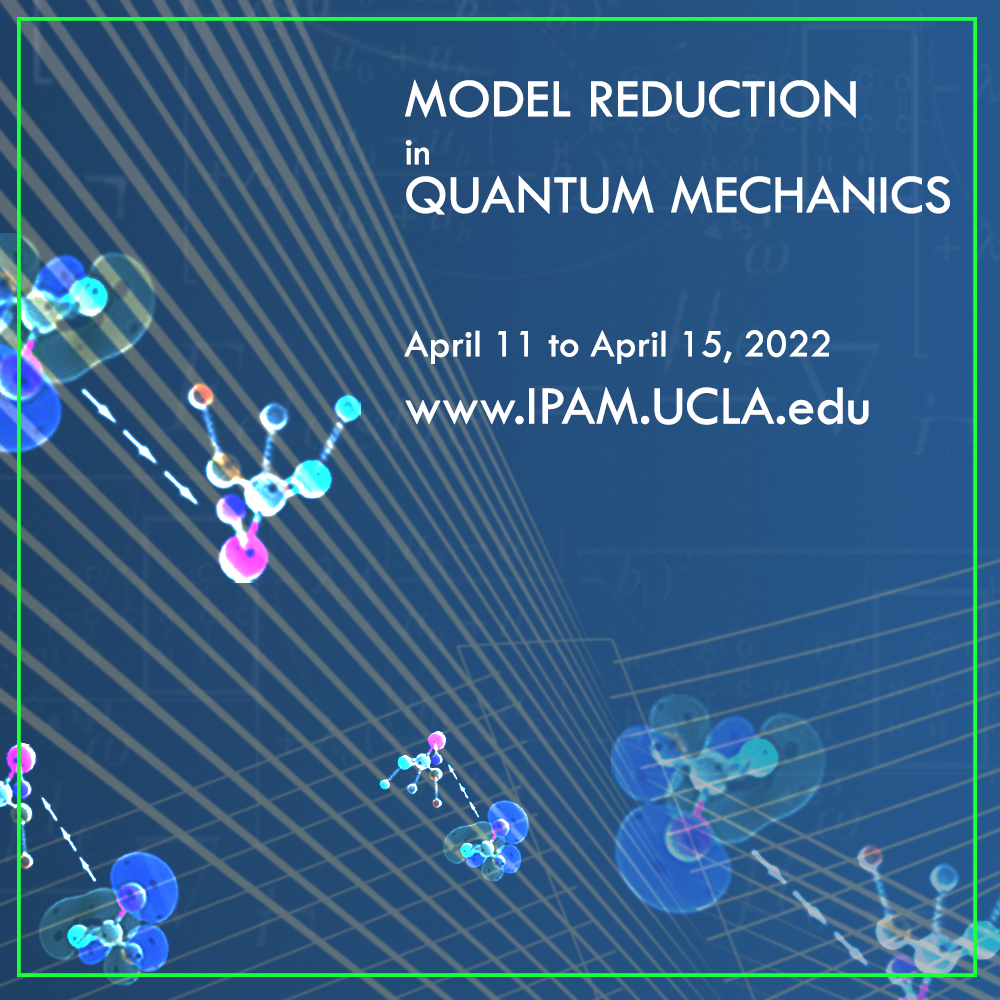Lukas Muechler - Quantum embedding methods for correlated excited states of point defects
Presenter
April 13, 2022
Abstract
Recorded 13 April 2022. Lukas Muechler of Penn State University, Chemistry, presents "Quantum embedding methods for correlated excited states of point defects: Case studies and challenges" at IPAM's Model Reduction in Quantum Mechanics Workshop.
Abstract: A quantitative description of the excited electronic states of point defects and impurities is
crucial for understanding materials properties, and possible applications of defects in
quantum technologies. This is a considerable challenge for computational methods, since KohnSham density-functional theory (DFT) is inherently a ground state theory, while higher level methods are often too computationally expensive for defect systems. Recently, embedding
approaches have been applied that treat defect states with many-body methods, while using DFT
to describe the bulk host material. In this talk, I will discuss our implementation of such an embedding method, based on Wannierization of defect orbitals and the constrained random-phase approximation. I will review our systematic characterization of the method for three distinct systems with current technological relevance: (i) a carbon dimer replacing a B and N pair in bulk hexagonal BN, (ii) the negatively charged nitrogen-vacancy center in diamond (NV-), and (iii) an Fe impurity on
the Al site in wurtzite AlN (FeAl). I will show that the embedding approach for CBCN gives many-body states in agreement with analytical results on the Hubbard dimer model, which allows us to elucidate the effects of the DFT functional and double-counting correction. For the NV- center, our method demonstrates good quantitative agreement with experiments for the zero-phonon line of the triplet-triplet transition. Finally, I will illustrate challenges associated with this method for determining the
energies and orderings of the complex spin multiplets in FeAl.
Learn more online at: http://www.ipam.ucla.edu/programs/workshops/workshop-ii-model-reduction-in-quantum-mechanics/?tab=schedule
